'The Economics of Happiness' features a chorus of voices from six continents calling for systemic economic change. The documentary describes a world moving simultaneously in two opposing directions. On the one hand, government and big business continue to promote globalization and the consolidation of corporate power. At the same time, all around the world people are resisting those policies, demanding a re-regulation of trade and finance - and, far from the old institutions of power, they're starting to forge a very different future. Communities are coming together to re-build more human scale, ecological economies based on a new paradigm - an economics of localization.
Related Movies

Billy Bragg & Wilco: Man in the Sand (2005)
"Man in the Sand" is a 1999 music documentary that chronicles the collaboration between Billy Bragg and Wilco, which involved the musicians creating new music to accompany lyrics that were written decades earlier by folk singer Woody Guthrie. The project, which was organized by Woody's daughter Nora, spawned two albums: "Mermaid Avenue," released in 1998, and "Mermaid Avenue Vol. II," released in 2000.

Out of the Rubble (2016)
In Out Of The Rubble, Woolcock shows how planners grappled with the grimmest poverty imaginable in the post-war era, from Brixton to Glasgow, Islington to Birmingham, believing that tower blocks would transform the lives of those living in decaying slums. She follows the cycle of optimism, building and eventual decline, meeting people who 50 years on bear witness to the effects of housing on real families, striking a contemporary chord with the theme of immigration and gentrification affecting working class communities. The irresistible nostalgia of scenes from the 1950s, 60s and 70s is tempered by a realisation of the force of history at work.

Microcosmos (1996)
A documentary of insect life in meadows and ponds, using incredible close-ups, slow motion, and time-lapse photography. It includes bees collecting nectar, ladybugs eating mites, snails mating, spiders wrapping their catch, a scarab beetle relentlessly pushing its ball of dung uphill, endless lines of caterpillars, an underwater spider creating an air bubble to live in, and a mosquito hatching.

Maestra (2012)
Cuba, 1961: 250,000 volunteers taught 700,000 people to read and write in one year. 100,000 of the teachers were under 18 years old. Over half were women. MAESTRA explores this story through the personal testimonies of the young women who went out to teach literacy in rural communities across the island - and found themselves deeply transformed in the process.

VTR St. Jacques (1969)
This short film was an experiment in using video recordings and closed circuit television to stimulate social action in a poor Montreal neighbourhood. A citizen's committee filmed people's concerns and then played back the tapes for the community. Upon recognizing their common problems, people began to talk about joint solutions. It proved an important and effective method of promoting social change.
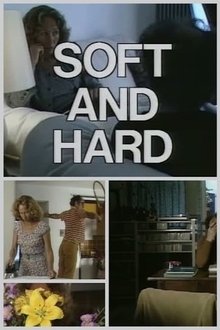
Soft and Hard (1985)
Jean-Luc Godard and Anne-Marie Miéville talk about their films, while doing everyday tasks around their house.
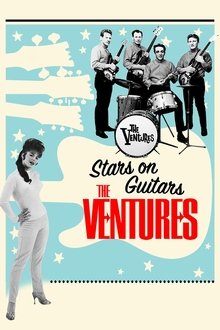
The Ventures: Stars on Guitars (2020)
Documentary film on the #1 instrumental rock group in the world, The Ventures. The story of their rise to fame in the 1960s right up to now, as they celebrate their 60th anniversary of playing the best guitar-rock of all time.

I'm Ugly But Trendy (2005)
Documentary about the musical and social phenomenon of Brazilian funk (or Carioca Funk), a style derived from Miami Bass, based on repetitive bass drum loops and lyrics full of sexual and violent overtones, not directly related to American funk/soul music. This style emerged in the slums and poor neighborhoods of Rio de Janeiro, and is deeply associated with the lower social classes, but is gradually being accepted on higher social circles. The film is specially interested in women's participation, focusing on its major female stars.
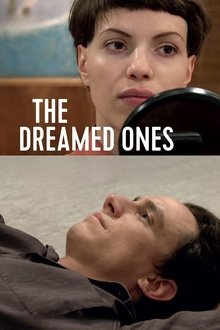
The Dreamed Ones (2016)
It’s not uncommon for a film to have a moving love story at its core. Yet this particular set-up is unusual. The lovers here are Ingeborg Bachmann and Paul Celan, both important representatives of post-war German-language poetry. The story of the relationship between the Austrian and the Jew from Czernowitz is told through their nearly 20-year correspondence (1948–1967). Or, more precisely, by a young woman and a young man reading from their letters in a studio in Vienna’s venerable Funkhaus.
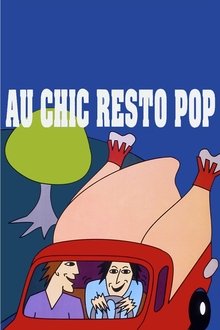
Au chic Resto Pop (1990)
In a poor eastern quarter of Montreal, a restaurant is dedicated for the poors only: le Chic Resto Pop. It used the surplus of some merchants to offer cheap meals. The young people who work there for free get a lot of satisfaction in their work in spite of the difficulties. The movie is build around six songs written by them.
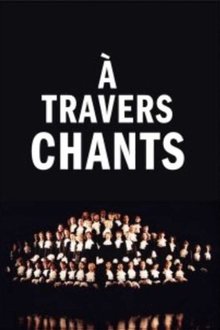
For a Song (2001)
Welcome to the magnificent yet unheralded world of choral music. A world inhabited by exceptional beings who have the capacity to experience joy from a single musical note. Individuals who partake in remarkable efforts to unveil that dream of beauty which preoccupies each and every one of them. You may notice them singing anywhere and everywhere: at the wheel, in the shower, even in the kitchen. But above all, they sing together, men and women of all ages and various backgrounds, transformed by the radiant glory of song, and united under the banner of L'Ensemble vocal d'Outremont. Music is at the centre of their universe and gives them the intense feeling of belonging to the human race. Especially as the big night approaches and the collective dream of perfect harmony is but a breath away.
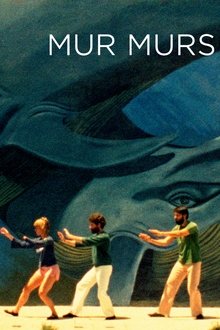
Mur Murs (1981)
Venturing from Venice Beach to Watts, Varda looks at the murals of LA as backdrop to and mirror of the city’s many cultures. She casts a curious eye on graffiti and photorealism, roller disco & gang violence, evangelical Christians, Hare Krishnas, artists, angels and ordinary Angelenos.

Tales of Two Who Dreamt (2016)
Tales of Two Who Dreamt is set in a housing block in Toronto and pivots on representation and self-representation. Here, a Roma family rehearses the stories of their past for the upcoming hearing on their residency status.

Pescenopolis (2003)
Pescenica is an old industrial suburb of Zagreb. As a satirical depiction of Croatia's recent politics, it has been declared independent republic. What's it like there today? Over a year, the film crew was combing streets, avenues, parks and backyards, focusing on the lives of four Pescenica inhabitants: its self-proclaimed president, a teacher in a Roma school, a cleaning lady in a film distribution company and a young stage director. All that in order to portray Pescenopolis, the film's protagonist that floats between mud and clouds.

Récréations (1993)
As French kindergarteners pour forth for recess, play takes on epic proportions. In every corner, some miniature drama is unfolding. Violence, love, jealousy, treachery are all here! This is human society in the making.
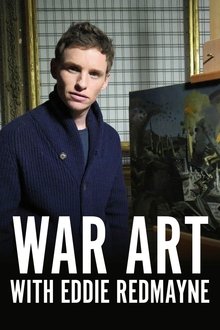
War Art with Eddie Redmayne (2015)
War is a compelling stimulus to the imagination, creating some of our richest and most powerful artistic inspiration. Oscar-winning actor Eddie Redmayne takes an intensely emotional journey, visiting artists’ studios, museums and travelling to battlefield locations to shine a powerful light into the abyss of warfare, where War Artists have left a unique legacy.
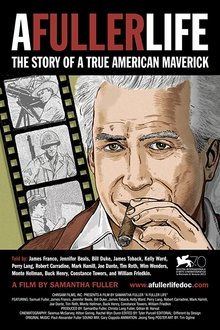
A Fuller Life (2013)
Friends and admirers of iconoclastic film director Sam Fuller read from his memoirs in this unconventional documentary directed by Fuller's only child, Samantha.
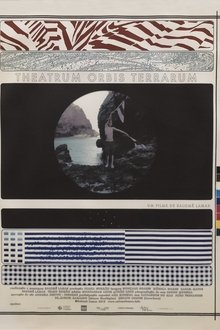
Theatrum Orbis Terrarum (2013)
In the sixteenth century the Padrão Real hung from the ceiling of the Map Room in the Casa da Índia. It was a secret map, guarded from the eyes of foreign spies, which was changed and reworked with the comings and goings of each expedition. Aided by scientific equipment to measure distance, the navigators dreamed up the representation of the expanses that they had covered. When at sea, they looked up to the heavens and gauged their path by the stars, hands drawing in space fictional lines that carved territories. Upon returning to shore, they took the map that had previously belonged to others as their own, erasing divisive lines and constructing new borders. The map that they followed has been lost over time, and what remains of it is a stolen copy, made from memory by one of the cartographers in order to outwit enemies.

The Last Impresario (2013)
Michael White might just be the most famous person you’ve never heard of. A notorious London theatre and film impresario, he produced over 300 shows and movies over the last 50 years. Bringing to the stage the risqué productions of Oh! Calcutta!, The Rocky Horror Show and to the screen Monty Python’s The Holy Grail, as well as introducing Merce Cunningham, Pina Bausch and Yoko Ono to London audiences, he irrevocably shaped the cultural scene of the 1970s London. Playboy, gambler, bon vivant, friend of the rich and famous, he is now in his eighties and still enjoys partying like there’s no tomorrow. In this intimate documentary, filmmaker Gracie Otto introduces us to this larger-than-life phenomenon. Featuring interviews with 50 of his closest friends including Anna Wintour, Kate Moss, John Waters and Barry Humphries and, of course, the man himself, Otto pays a vibrant tribute to a fascinating entertainer.

Marvin Hamlisch: What He Did For Love (2013)
When Marvin Hamlisch passed away in August 2012 the worlds of music, theatre and cinema lost a talent the likes of which we may never see again. Seemingly destined for greatness, Hamlisch was accepted into New York’s Juilliard School as a 6-year-old musical prodigy and rapidly developed into a phenomenon. With instantly classic hits ‘The Way We Were’ and ‘Nobody Does It Better’ and scores for Hollywood films such as The Swimmer, The Sting and Sophie’s Choice and the Broadway juggernaut A Chorus Line; Hamlisch became the go-to composer for film and Broadway producers and a prominent presence on the international Concert Hall circuit. His streak was staggering, vast, unprecedented and glorious, by the age of 31 Hamlisch had won 4 Grammys, an Emmy, 3 Oscars, a Tony and a Pulitzer prize: success that burned so bright, it proved impossible to match.